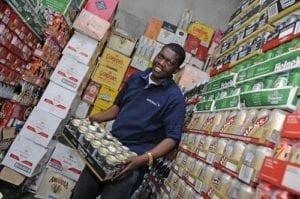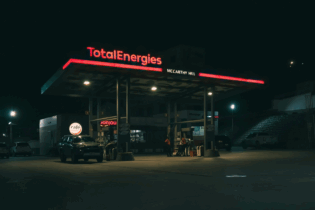CR There are plenty of assumptions associated with African consumers and what they do or do not want. Many of these are inaccurate. For example, there is the belief that the African consumer is neither brand conscious nor tech savvy. At Imperial, we recognise that the African consumer is not a homogeneous population. When people ask us what the market is like in Africa, I liken it to the weather in North America. Our 50 countries are different and dynamic, with so much variety that there is no way to shoehorn them into one bland description. The continent has thousands of different languages, cultures, values, and social customs, which all influence how consumers behave and react. Imperial is in a unique position to add significant value to our clients’ brands by having “feet on the ground”. This refers to Imperial’s ability to give brand owners access to consumers via our people in-country who talk directly to consumers and have deep local knowledge and insight. Africa has a young, upwardly mobile population. What unique demands do these consumers place on your supply chain?
Young African consumers are just as interested in high-end, global brands as consumers in other parts of the world are. Nigerians, for example, show a high degree of preference for more costly, innovator drugs, clearly preferring these over generics. In Mozambique, we’ve found that expensive whiskeys are more popular in bars in Maputo as they represent a status symbol for the middle class. There is also often a bias against locally produced products in favour of imported goods, as the imports are assumed to be of superior quality and/or taste better. This doesn’t mean that consumers on the African continent don’t want a good price or a bargain; it’s just that they are savvy enough to know the difference and want high-quality products that fit their image and lifestyle.
What role is technology and innovation playing in your African strategy?
Technology and its ability to track, monitor, and engage is a powerful tool that Imperial has harnessed to ensure that it can thrive in Africa’s competitive markets. We see technology as the digital bridge between what people buy and what brand owners want to sell. The competition for the consumer’s share of pocket is extraordinary and the innovative use of technology can provide the insight needed to make a brand stand out and capture attention. Technology has a real impact on human life and we are determined to use it as best we can to make a difference.
We believe that our integrated, end-to-end approach to the route to market offers the solution. We can take full responsibility for partnering with our principals and do not sell transactional logistics services, which are constrained by point inefficiencies. In terms of border delays, we actively support industry bodies that are focusing on introducing customs simplification, among other initiatives. How do you avoid creating a collection of independent markets and operating units with duplicated functions and limited alignments?
We have to consider the reality that different markets are quite independent and that we need a model of decentralised accountability to ensure relevance in each country or cluster of countries. The duplication that comes with this is worthwhile; the alternative would be to try to manage Africa from the comfort of a boardroom in Johannesburg or – even worse – some European or American city. That will not work. We offer our clients some standardisation and extensive governance, which we believe provides the appropriate model for Africa. Rapid economic growth and urbanisation is encouraging, but also increases congestion and places more pressure on supply chain efficiencies. How is Imperial dealing with this?
We ensure that we adapt to each environment. Unfortunately, we cannot solve urban congestion. As the supply chains mature, we aim to spread the workload across all 168 hours in a week, as we have done very successfully in South Africa. How does Imperial ensure network-wide visibility across South Africa’s borders?
We use a combination of technologies, including continued reliance on telephones and telematics. That being said, it remains a mammoth task. But, we have some ideas on how we can innovate in this area. Watch this space. What is your view of using other transport methods in Africa, such as rail?
Imperial uses rail as a transport method in South Africa and will expand its use thereof whenever there is a commercially viable and reliable rail service available. The same view applies to other countries in Africa. Our business is about providing the best logistics for our clients and principals – not about keeping our trucks busy. We believe that rail logistics should be part of our offering.








